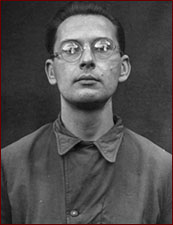
|

|
Many hold that making use of the data wrenched so brutally from helpless victims would not only validate the Nazi doctors' unthinkable acts, but also make us the victims' "retrospective torturers" (attorney Baruch Cohen) and them our "retrospective guinea pigs" (Dr. Harold M. Spiro, Department of Internal Medicine, Yale University). [13 & 14] Indeed, Lord Immanuel Jakobovits, Chief Rabbi of the British Commonwealth of Nations and an expert in Jewish medical ethics, felt use would only serve to further dishonor the victims [15], while the late Harvard Medical School professor Dr. Henry Beecher believed publishing unethically obtained medical data would cause a "far-reaching moral loss to medicine." [16] "The idea behind the negative reaction now is that the Nazis were criminals; we are decent. That's not true. What we've done is not as evil, but it's in the ballpark."—Dr. Arthur Caplan, bioethicist now at the University of Pennsylvania, commenting about uproar surrounding physiologist Robert Pozos' proposed use of Nazi data on hypothermia [17] 
References 13. Cohen, p. 27. 14. Spiro, Howard M., M.D. "Let Nazi Medical Data Remind Us of Evil" (Letter to the Editor). The New York Times 4/19/88, p. 30. 15. Cohen, p. 30. 16. Beecher, Henry K. "Ethics and Clinical Research." The New England Journal of Medicine, Vol. 274 No. 24, 6/16/66, p. 1360. 17. Siegel, p. 1. 18. Katz, Jay. "Abuse of Human Beings for the Sake of Science." In Caplan, p. 265. 19. Kor, Eva Mozes. "Nazi Experiments as Viewed by a Survivor of Mengele's Experiments." In Caplan, p. 7. 20. Gaylin, Willard. "Commentary" (responding to "Nazi Data: Dissociation from Evil"). Hastings Center Report, Vol. 19, July/August 1989, p. 18. Photo: Hedy Epstein, courtesy of USHMM Photo Archives The Director's Story | Timeline of Nazi Abuses Results of Death-Camp Experiments: Should They Be Used? Exposing Flawed Science | Resources Transcript | Site Map | Holocaust on Trial Home Editor's Picks | Previous Sites | Join Us/E-mail | TV/Web Schedule About NOVA | Teachers | Site Map | Shop | Jobs | Search | To print PBS Online | NOVA Online | WGBH © | Updated October 2000 |
